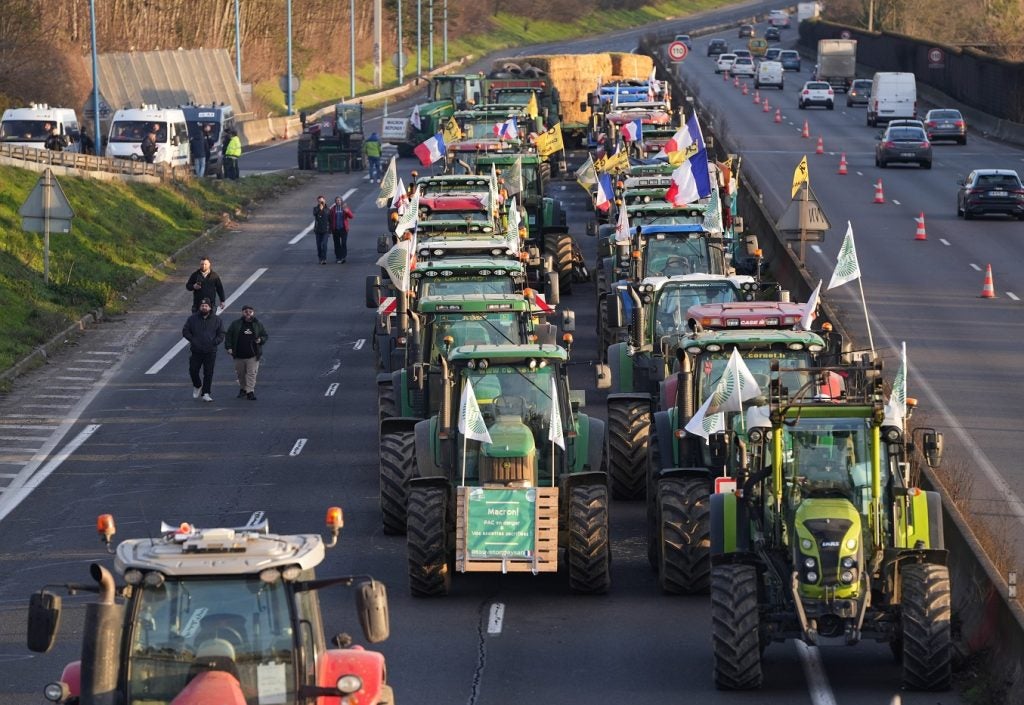The European Commission today (31 January) put forward changes to rules on fallow land and a mechanism to curb exports from Ukraine amid protests from farmers across the bloc.
Farmers in France and Belgium, angry at rising costs and cheap imports, have carried out days of protests and set up blockades on key transport routes.
In separate statements issued today, the Commission set out proposals to allow farmers in the EU to use derogations from Common Agricultural Policy rules requiring them to keep certain areas non-productive.
Brussels, meanwhile, has also laid down plans for an “emergency brake” on imports of poultry, eggs and sugar from Ukraine. Food exports from Ukraine into the EU have long caused tension within the bloc, especially among farmers in neighbouring countries.
EU-wide farming lobby group Copa-Cogeca called the planned pause on rules on fallow land “late in the agricultural calendar” and “limited”. It also argued the proposal on Ukraine would not “provide sufficient relief”.
Brussels’ proposal on fallow land, sent to member states to approve, will allow all farmers to be exempt from the obligations this year. Under EU rules, farms with fewer than ten hectares of arable land are typically exempted.
“Today’s measure offers additional flexibility to farmers at a time when they are dealing with multiple challenges. We will continue to engage with our farmers to ensure the CAP strikes the right balance between responding to their needs while continuing to deliver public goods for our citizens,” European Commission President Ursula von der Leyen said.
The plan to introduce a “brake” on poultry, eggs and sugar from Ukraine was announced alongside a proposal to renew the suspension of import duties and quotas on Ukrainian exports to the EU, measures originally introduced in the wake of Russia’s invasion in February 2022.
Under the brake, if imports of poultry, eggs and sugar from Ukraine exceed the average volumes seen in 2022 and 2023, tariffs would be reimposed.
“The EU must continue to show solidarity with Ukraine and Moldova in the face of Russia’s continuing aggression. This proposal strikes the right balance: we are maintaining our economic support for both countries while taking EU farmers’ interests and sensitivities fully into account,” Valdis Dombrovskis, the EU’s Commissioner for Trade, said.
“This will achieve the dual objective of helping to keep Ukraine's and Moldova’s economies going, while at the same time having stronger safeguards to prevent market disruptions in the EU.”
Farming lobby group critical
Copa-Cogeca criticised the decision to exclude cereals and oilseeds from the brake, labelling their absence “totally unacceptable”.
In a statement, the farming organisation added: “While we believe that it is in the EU’s duty and interest to continue supporting Ukraine, the solution to the current situation concerning the impact of the imports on EU producers must be effectively addressed. Thus, we, as agricultural producers, are ready to continue doing our part in the EU efforts to help Ukraine. Unfortunately, we believe that this effort is not equitably shared, with the agricultural sector bearing a disproportionate and unsustainable burden.”
Demonstrations among farming groups have led to the blockade of access routes to the Belgian port of Zeebrugge. Farmers in Italy and in Spain have also held protests.
Amid the protests, France has also taken aim at trade talks between the EU and the Mercosur trade bloc in South America. French farmers have long criticised the prospect of the agreement.
Earlier this week, France’s President, Emmanuel Macron, reportedly told the Commission it is impossible to conclude negotiations at present.
A Commission spokesperson told Reuters yesterday the talks with Mercosur are “continuing and the European Union continues to fulfill its objective of achieving an agreement that respects our sustainability goals and respects our sensitivities, particularly in agriculture”.
Attempts to seal a trade agreement between the EU and Mercosur – a bloc formed by Brazil, Argentina, Uruguay and Paraguay – go back several decades. A text was signed in 2019 but needs ratification from all EU member states and
France has repeatedly voiced concerns about the terms of the mooted deal.









